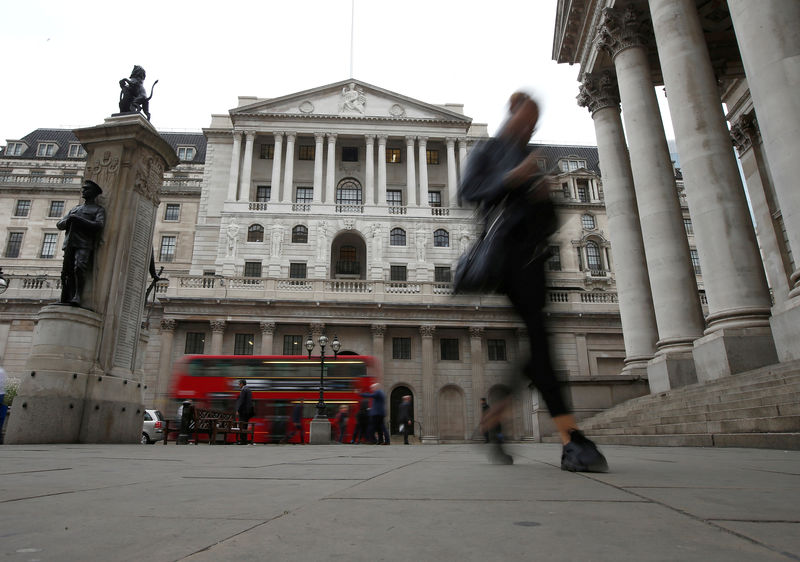By David Milliken
LONDON (Reuters) - Britain's economy looks set to defy a slowdown again this year as the country moves closer to leaving the European Union, with the hit to shoppers from surging inflation partly offset by more investment and exports, a Bank of England report suggested.
Britain last year was the fastest-growing major advanced economy after Germany, despite June's shock vote to leave the European Union, which caused the pound to tumble and prompted widespread predictions of recession.
Wednesday's report from the central bank's regional staff broadly tallies with BoE forecasts last month that growth will remain solid in 2017, even as inflation erodes households' disposable income.
Official data on Tuesday showed inflation outstripped expectations last month to reach 2.3 percent, its highest level in more than three years, testing the central bank's stated willingness to overlook temporary surges in price growth.
The BoE expects Britain's economy to grow 2 percent this year - little changed from last year and at the top end of private sector forecasts - but is less upbeat about longer-run prospects following June's Brexit vote.
This leaves the bank's policymakers in a dilemma. Last week one of them, Kristin Forbes, broke the BoE's consensus on rates for the first time since July, calling for a reversal of August's rate cut, and a minority of other members of the Monetary Policy Committee are considering following suit.
But Britain's economy has struggled in the past to shake off its reliance on consumer spending - which powered growth in 2016 - and previously forecast pick-ups in investment and exports have often failed to materialise.
One sceptic is Royal Bank of Scotland's (L:RBS) chairman, Howard Davies, who told a Frankfurt banking conference on Wednesday that he was "slightly nervous" about Britain's growth prospects.
"The UK economy, I think, is not quite as robust as it looks, because it is rather heavily dependent on consumer spending," he said. Rising property prices had allowed Britons to finance spending by borrowing against their homes, while business investment had fallen, he added.
GLOOMY HOUSEHOLDS
For several months, consumer sentiment surveys have shown households are feeling increasingly squeezed.
Financial data company Markit said on Wednesday that its latest survey of households' financial situation showed gloom about the next 12 months had risen to its highest in more than three years, due to rising inflation and subdued wage growth.
The jump in inflation last month has called into question the BoE's forecast that it will only get as high as 2.7 percent this year. And wages look unlikely to keep up: the BoE's agents survey said businesses had been able to keep labour costs in check, typically offering pay rises of only 2.0-2.5 percent.
Retailers reported shoppers were buying less in response to higher prices, though the picture was mixed and other areas of consumer spending such as eating out were growing robustly.
The finance chief of home improvements retailer Kingfisher (L:KGF), Karen Witts, said she had not yet seen any big change in customer behaviour, despite concerns about the outlook.
Lead indicators of demand such as the number of tradesmen buying costly power tools and work wear were holding up "very well", Witts said after Kingfisher released annual earnings on Wednesday.
The economy's overall resilience so far - in contrast to widespread forecasts of a recession after the vote to leave the EU - had given companies confidence to modestly step up investment plans, the BoE said.
Firms were pressing on with plans to counteract higher energy, labour and materials costs, and stronger domestic tourism supported refurbishment of leisure projects.
But uncertainty about the outcome of Brexit negotiations was weighing on some longer-term projects.

Manufacturing exports were being boosted by a weaker currency and stronger global demand, though this was more muted for some less price-sensitive services exports such as engineering and IT.